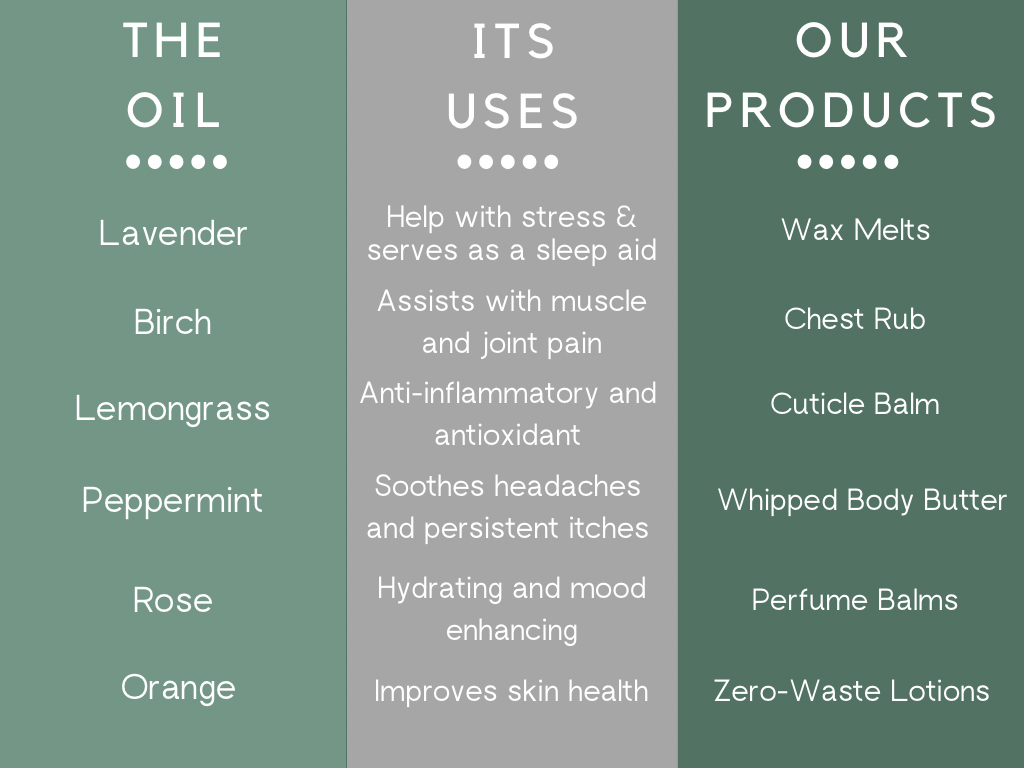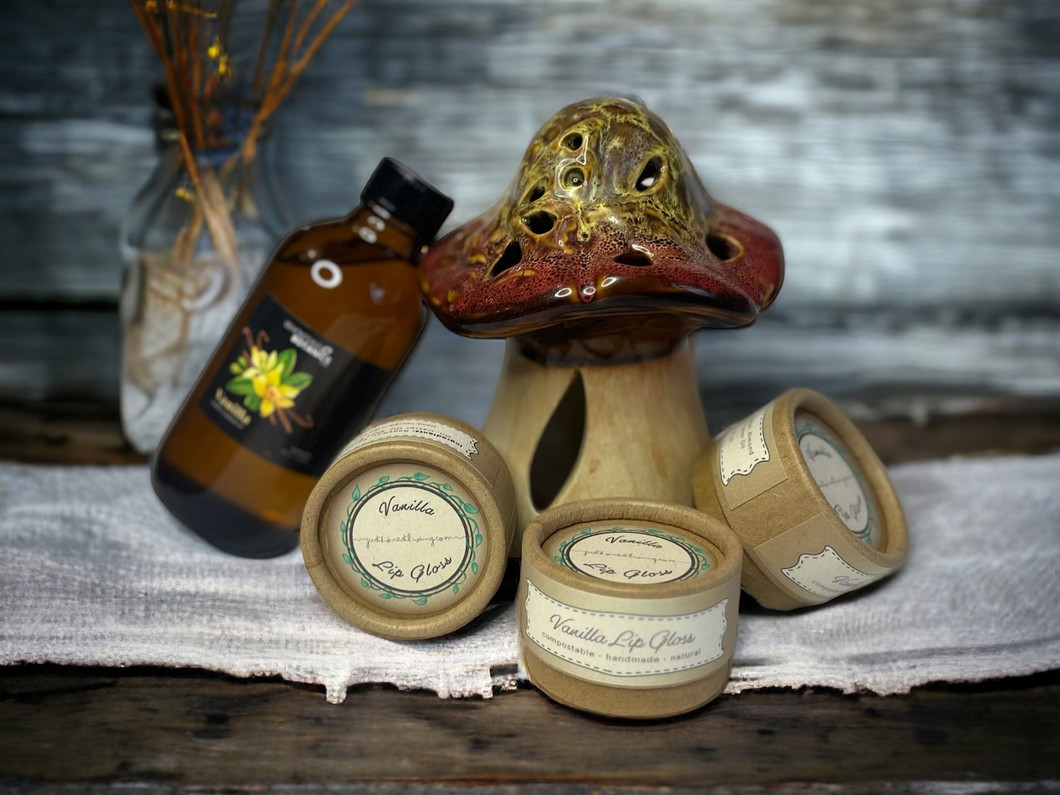Essential Oils vs Fragrance Oils
Essential oils have been used for centuries for a variety of purposes. Within the modern United States, use of essential oils for aromatherapy has been popular since the 1980s. It’s easy to see why – they can have a number of positive effects on your mood, and they typically smell great! While essential oils are often used for fragrance purposes, it’s important to note that they’re fundamentally different from fragrance oils. These key differences can matter when it comes to thoughtfully purchasing scented products.
What is an essential oil?
You’ve probably heard a lot about essential oils, but what exactly makes an oil “essential”? The answer is found in the name! Essential oils are all-natural extractions from plants. This seems like a pretty simple explanation, but it’s this straightforward nature that sets essential oils apart from other kinds of fragrant oils. With no synthetic ingredients or additives, these naturally-occurring oils can have a number of positive effects when used for aromatherapy. For instance, you may know that the scent of lavender can help put you to sleep. This is only true for naturally occurring lavender scents, like those found in essential oils.
What is a fragrance oil?
Fragrance oils are often used in products like scented candles and perfumes, or sold alone for use in a diffuser. Fragrance oils are produced in labs. While they may mimic a naturally occurring scent, such as vanilla or lemon, they are always artificially produced. Some fragrance oils use essential oils to make their scent more accurate, but the myriad of synthetic ingredients detract from the possible benefits. Even “natural” fragrance oils are made in labs and often contain preservatives and other chemical compounds that essential oils lack.
What are some other key differences?
Now that you know what these oils are, how do you know which one to choose for your next project, or just to make your living room smell amazing? Consider some other key differences.
Shelf Life
The average shelf life of a fragrance oil is 6-12 months. If you’ve ever used an old scented hand sanitizer or body spray, you’ve likely smelled that distinct alcohol scent. That’s because these oils lose their potency, whether as part of another product or alone, relatively quickly. Essential oils tend to have a longer shelf life. While things such as storage practices can change the stability of any oil, essential oils tend to have a shelf life of 2 years or longer, with some reports of potency up to 15 years!
Other Benefits & Drawbacks
Many essential oils can have positive effects when used for aromatherapy. For instance, essential oils from lavender and jasmine can have relaxing properties. While people can be allergic to many different things, including the plants that essential oils are derived from, negative reactions to fragrance oils are far more common. Fragrance oils can be troubling for people with asthma or other respiratory issues. This is problematic, as fragrance oils are often used in public spaces. They can also cause eye irritation and runny noses, even for those of us who have no history of allergies or other respiratory issues.
If you’re planning on using a scented oil in a DIY project, it’s important to consider the above. You should also think about what kind of project you’re doing. For instance, many people find it more difficult to make scented candles with essential oils, as the process is often more rigorous. That being said, only essential oils have aromatherapeutic properties, so if you want your project to have the ability to help with nausea, raise your mood, or reduce your stress levels, essential oils are the way to go.
Impacts on the Environment
We already know that essential oils are naturally-occurring. This has the added benefit of making them biodegradable! Fragrance oils contain chemicals that simply can't break down into natural compounds. Producing fragrance oils can be resource intensive, whereas essential oils are typically extracted using natural processes, like steam distillation. Some people raise concern with overharvesting and deforestation from the production of essential oils. It’s important to make sure that the brands you’re getting your essential oils from are committed to sustainability, but in general, the environmental harms still tend to be far less when using essential oils, both in their production and use.
To look for a sustainably produced essential oil, look at the label! Many brands that are environmentally conscious will have the location where the oil was extracted as well as the extraction method (steam distillation or cold-press) right on the bottle.
The essential oils that Just Honest uses come from a variety of farms that support sustainable harvesting and growth practices, as well as being 100% pure, vegan, and cruelty-free. Check out some of our favorite scents and their popular uses below or browse our Ingredient & Scent Guide!

Recent Posts
-
Celebrating Mother’s Day Sustainably
On Mother’s Day, everyone scrambles to find the perfect present for the woman who gave them the gift …Apr 18th 2024 -
How to Shop Slowly in a World of Fast Fashion
Whether you’re a fashion fanatic or live in sweatpants, clothing is something we all buy, own and us …Apr 6th 2024 -
Celebrating Easter Sustainably
With Easter quickly approaching, holiday celebrations are probably on your mind. This is a great tim …Mar 26th 2024




